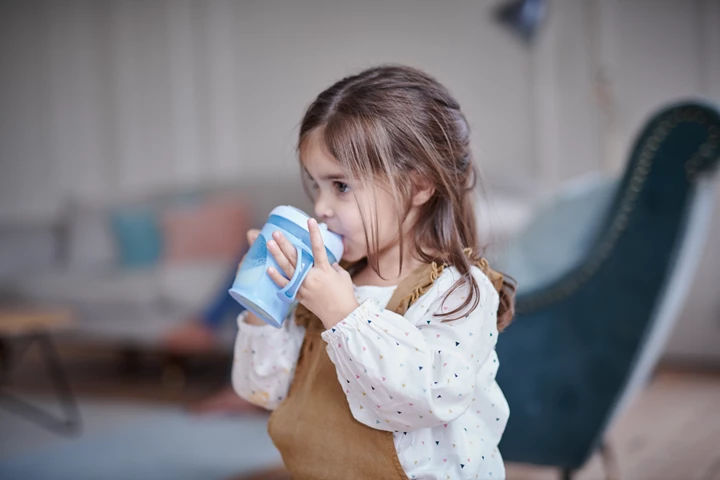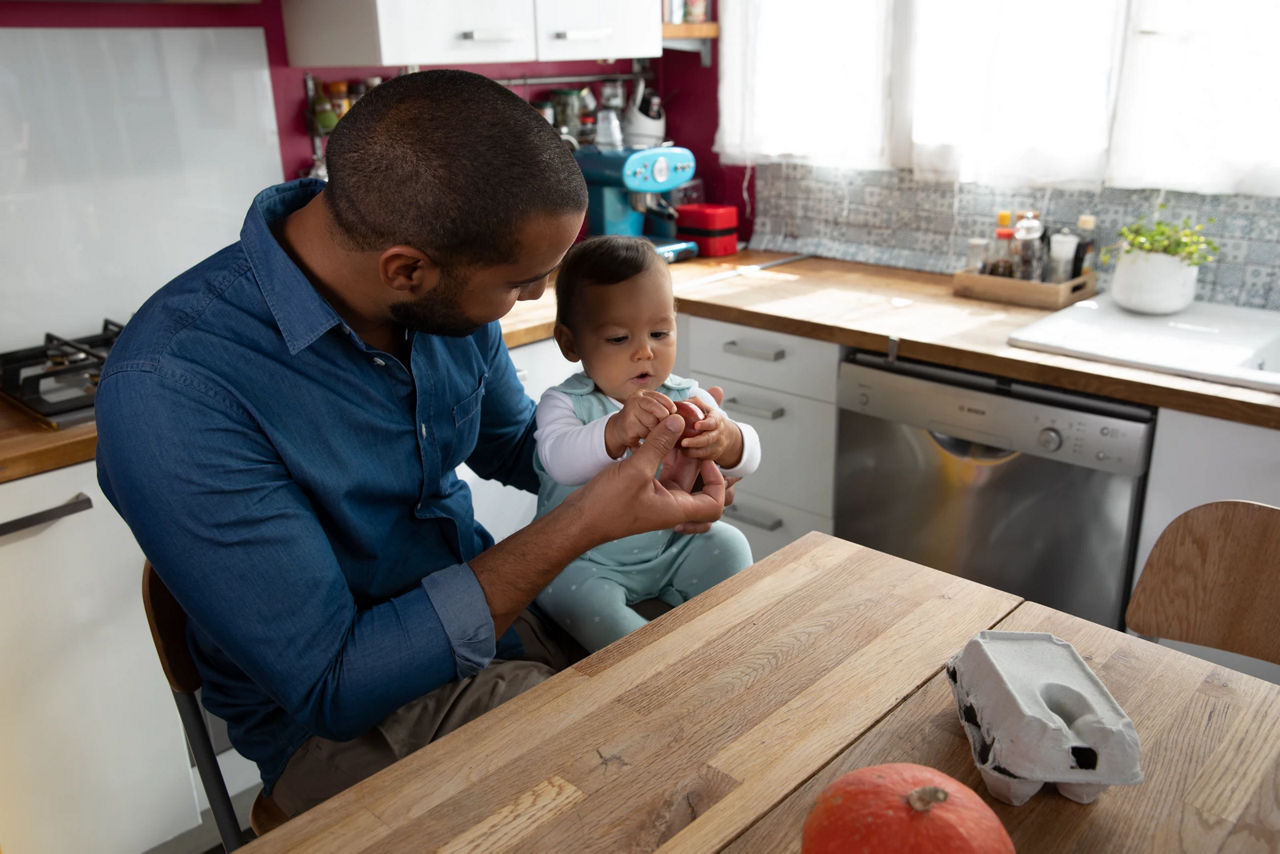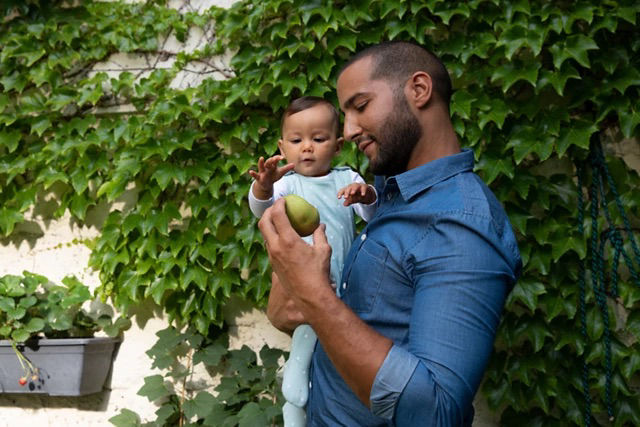Moving on from a bottle to a free-flow beaker and then a cup is a significant stage in your child’s development. Not only does it give them increased independence, it helps with speech development and can prevent damage to their teeth from drinks.
Weaning from bottle to beaker
Steady progress
Why it's good to move on from the bottle

Weaning your baby from their bottle
Prolonged use of a bottle can delay your toddler’s speech development and damage their teeth. This is because milk flow from a teat is slow, meaning it stays in their mouth for longer1.
Advice from the Department of Health is that if you are bottle-feeding, it’s a good idea to introduce a cup rather than a bottle from about six months onwards. By the time your baby is one, they should have stopped using bottles with teats. Otherwise, they may find it hard to break the habit of comfort sucking on a bottle.
Ideally, introduce a cup when they start eating solid foods – 6 months onwards is ideal.¹
For this reason, and to encourage their independence, your toddler should be weaned off the bottle and drinking solely from a beaker or cup by their first birthday1. Switching over to a free-flow cup without a spout may mean a few more spills but it encourages sipping rather than sucking, which is better for their teeth.
What to put in their beaker
It may take a while for your toddler to take to their beaker or cup after being weaned off the bottle, so it is important to ensure they get adequate nutrition from their drinks. Cows’ milk is not recommended as their main drink until the age of 12 months, so you may wish to consider a nutritionally tailored follow on milk.
From the age of 1 year you may consider moving your toddler onto Aptamil Growing Up Milk 1-2 yrs, which is tailored to their nutritional needs. By offering your toddler 3 dairy servings a day, including milk or milk-based dairy foods, you will provide them with enough calcium to help their bones and teeth develop healthily1.
Milk or water are better for your toddler than fruit juice, even if it is diluted, as the natural sugars in juice can still lead to tooth decay.¹
Choosing the right beaker
It is best to start with a free-flow, no valve, lidded beaker when weaning your baby from their bottle, rather than a non-spill beaker with a valve. This will teach your baby to sip, rather than suck. A beaker with two handles will also make it easier for them to hold. Once they are confident drinking from a lidded beaker, by around 1 year, you can introduce them to a cup1.
Next steps
- Start with a free-flow, no-valve beaker, preferably with 2 handles
- Move on to a cup when they have mastered a beaker
- Fill the beaker with milk or water, rather than fruit juice
- Use a follow on milk at around 6 months or a growing up milk from 12 months to enhance nutrient intake
Related articles

Need some help?
You can get quick answers to common questions in our FAQs.
Alternatively, if you need help with general pregnancy or baby advice, or maybe on using or ordering our products - our expert team are always on hand to talk about feeding your baby.
- NHS UK. Drinks and cups for children [Online]. 2013. Available at: www.nhs.uk/Conditions/pregnancy-and-baby/Pages/drinks-and-cups-children.aspx [Accessed July 2014]
Last reviewed: 21st August 2014






